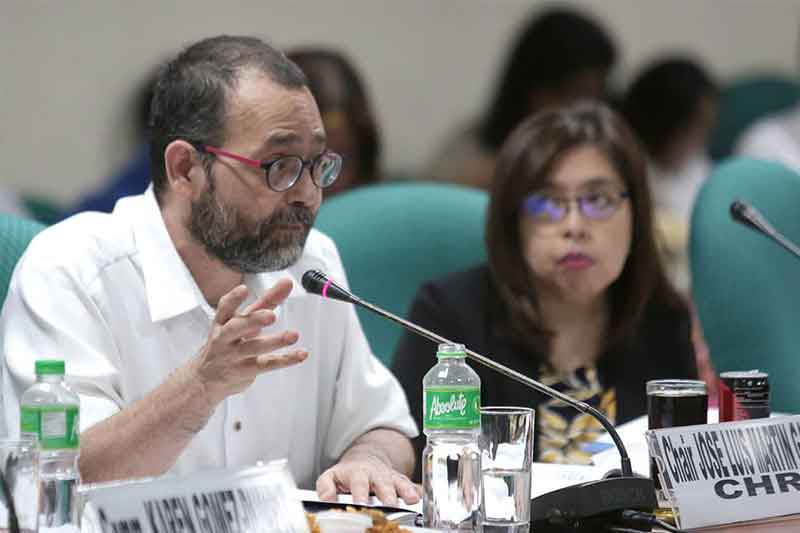MANILA, Philippines — The Philippine government appears to be "in denial" over the human rights situation in the country as it rejected 55 recommendations of United Nations member-states in its Universal Periodic Review, Commission on Human Rights Chair Chito Gascon said.
The Philippines only accepted 103 out of 257 recommendations from UN member-states and merely "noted" another 99. Meanwhile, 44 of the rejected recommendations pertained to extrajudicial killings linked to the administration's so-called war on drugs.
"I don't understand why Secretary of Foreign Affairs and the government as a whole views this as what they call a victory — because what did actually manifest in the international forum is that the Philippines is still in denial and is not prepared to accept its responsibilities on all aspects of human rights," Gascon said in an interview with ANC on Tuesday.
Gascon noted that the Philippines accepted recommendations regarding economic, socio and cultural rights issues, rights of children, reproductive health measures, protection of women and LGBT concerns.
READ: Philippines rejects nations' positions on drug war deaths | Ignoring issues raised, Philippines claims 'victory' in UN review
The Philippines, however, rejected the recommendations on "hard issues" such as deaths resulting from the anti-illegal drugs campaign and the proposed reinstatement of capital punishment in the country.
"This is where we, as a country, fell short in the course of that dialogue on the Universal Periodic Review," he said.
Gascon added that almost every UN member-state expressed concern about conducting an independent investigation into the extrajudicial killings in the country.
"They spoke about ending impunity, they spoke about bringing the perpetrators to justice. That the Philippine government would outrightly reject this, essentially, because the theory they propounded was that they got it wrong, that there are no extrajudicial killings that are happening here," Gascon said.
'Double speak'
The government's rejection of allowing UN special rapporteur Agnes Callamard to visit the country for an investigation and President Rodrigo Duterte's pronouncement on hosting a UN contingent to look into extrajudicial killings contradict each other, according to Gascon.
The president earlier said that he was considering to invite the UN to set up satellite offices across the country to monitor the police.
"So what are you hiding? That’s another thing — that Secretary Cayetano said that the Philippines has nothing to hide with respect to its human rights record yet it’s still afraid to invite the special rapporteurs to come in," Gascon said.
Gascon also noted that Duterte did not grant clearance to the Philippine National Police to hand over all case folders involving deaths resulting from the drug war.
"There is a lot of prevarication that is happening where the government is saying there's nothing to worry, it's not happening yet they're not being transparent," the CHR chair said.
Malacañang, on the other hand, justified the government's rejection of 154 of 257 rejections by the UN Human Rights Council.
Presidential Spokesman Ernesto Abella said that the government was only exercising its prerogative to pursue an independent foreign policy.
“What really matters is that the United Nations Human Rights Council has adopted the Philippine report recognizing the country’s human rights record and commitments under the leadership of President Duterte," Abella said.
READ: Palace justifies rejection of UN recommendations
The House of Representatives recently gave the CHR, which has been painted by Duterte and his allies as being biased for criminals and drug lords, a budget of P1,000 for 2018. House leaders said the CHR should also look into instances where non-state actors like criminals and the New People's Army violate human rights. One example that House leaders gave was the NPA collecting money from politicians who want to campaign in rebel-influenced areas.
READ: House leaders: CHR commissioners ignorant of Constitution
The House has agreed to partially restore the proposed budget of the CHR after protests online and from the Senate, where lawmakers answer to a national constituency.


